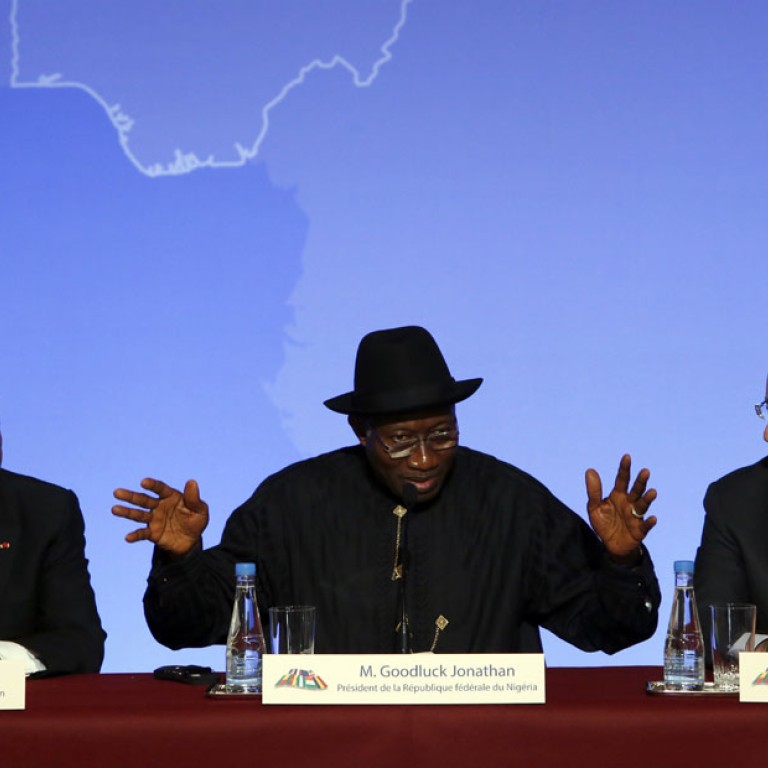
Nigeria, neighbours declare 'war' with Boko Haram terrorist group
Leaders of Nigeria and neighbouring countries pledge to cooperate in fighting militant group behind unsolved abduction of 276 schoolgirls
Nigeria and its neighbours yesterday declared war on Boko Haram and vowed to work together to combat the Islamic militants.
Meeting in Paris, Nigerian President Goodluck Jonathan and his counterparts from Benin, Chad, Cameroon and Niger approved an action plan designed to counter an organisation blamed for an attack on a Chinese work site on Friday and which has caused global outrage with its abduction of more than 200 schoolgirls.
"We have seen what this organisation is capable of," French President Francois Hollande said at the close of the half-day summit here. "When more than 200 young girls are being held in barbaric conditions with the prospect of being sold into slavery, there are no questions to be asked, only actions to be taken," Hollande added.
Watch: Nigerians react to Paris meeting on Boko Haram
"This group is armed, with heavy weapons of an unimaginable sophistication and the ability to use them," he said. The weapons came from chaotic Libya, and the training took place in Mali before the ouster of its al-Qaida linked Islamist leaders. As for the money, Hollande said its origins were murky.
The action plan would involve co-ordination of surveillance efforts, the sharing of intelligence and joint efforts to secure the porous borders in the region, Hollande said.

"There is determination to tackle this situation head on ... to launch a war, a total war on Boko Haram," Chad's President Idriss Deby said.
Nigeria's Jonathan, who has been criticised for what many see as a lacklustre response to the girls' abduction, said he was totally committed to finding them and returning them to their distraught families.
"Boko Haram is no longer a local terror group," he said. "From 2009 to today it has changed and can be described as Al-Qaeda in western and central Africa."
Nigeria has been under pressure to step up cooperation with its neighbours in the fight against Boko Haram for some time. But efforts on that front have been hampered by the frosty state of relations with Cameroon, with which Nigeria has a long-running territorial dispute.
British Foreign Secretary William Hague told reporters just before the summit that the countries in the region had to forge a "strategy to defeat Boko Haram more broadly" as well as resolving the case of the missing girls.
The resources already at Nigeria's disposal include US drones and surveillance aircraft. Experts from Britain, France and the US are advising Nigeria on its counter-terrorism strategy.
But signs are growing that some Nigerian troops are near mutiny, complaining they are overwhelmed and outgunned by Boko Haram. Some soldiers have said that some in the ranks actually fight alongside the group. Last year, Jonathan said he suspected that Boko Haram members and sympathizers had infiltrated every level of his government and military, including the Cabinet.
